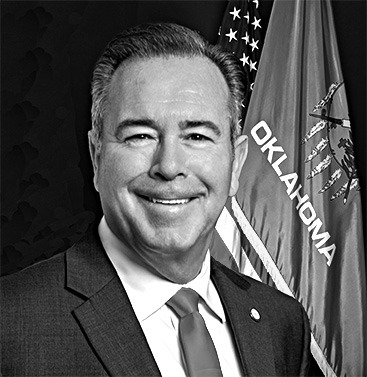No Oklahoman should be denied access to financial services. This reality has hit homes and businesses across the state. While the world has made money the lifeblood for everyday survival, so too have financial institutions become woven into the fabric of daily life. This power creates potent dangers on every side.
With the most recent executive order, Guaranteeing Fair Banking for All Americans, the days of debanking are surely on the decline. Within the next six months, work will be done to remove reputational risk and politicized, unlawful debanking requirements by regulators like the Small Business Administration and other federal agencies with supervisory and regulatory authority over banks, savings associations and credit unions.
The concept of reputational risk started in the mid to late 90s to help reduce risk tied to negative public opinion harming earnings or capital. While financial risk is paramount to safeguard, regulating reputational risk became subjective due to the lack of standards and potentially biased decision making. Not having clear, consistent standards for what constitutes reputational harm left the door open for beliefs of any kind to be unfairly targeted and manipulated.
Opposition soon followed as the pursuit of limiting customers based on specific religious, social, cultural or political agendas became easier. Where none of these agendas or beliefs can contribute to the bottom line either negatively or positively in a predictable manner, the need for change was real.
In recent months the Federal Reserve, Office of the Comptroller of the Currency (OCC) and Federal Deposit Insurance Corporation (FDIC) have taken steps to remove reputational risk from their programs. Together with the actions of the new executive order, this progress supports the work to end debanking and restore fairness in our financial system.
These changes will help everyday Oklahomans and small businesses across the state, improving the livelihood and heartbeat that makes this state great. Today, where public trust is tied to the economy, every step towards strength is a win. Giving back the power to the people earns public trust, as government listens and engages with citizens to strengthen everyday life and the future.
While the projected risk diminishes federally, the actual risk will still remain. Financial institutions navigating public-facing risks have real concern about what comes next. Shifting from a compliance-driven approach to a state or even internal driven approach is no small feat. Existing financial risk frameworks, third-party services and security mechanisms are easy to lean on, but being transparent, accountable and communicative is the challenge. In the face of any public controversy or litigation, a strong, financially driven risk evaluation will protect an institution against high-risk customers.
As a proponent of fair banking since the inception of taking the Office of the State Treasurer, I look forward to continuing this work for Oklahomans in the future. These changes show real progress that strengthens both our people and the financial future they work so hard to build.

Todd Russ


